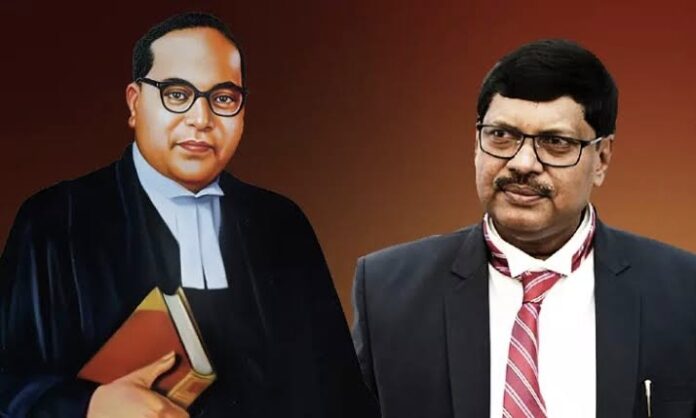Dr Ambedkar Warned Against Allowing Parliament To Liberally Amend Constitution: Justice BR Gavai – Anmol Kaur Bawa
By Anmol Kaur Bawa
In a powerful reminder of India’s constitutional ethos, Supreme Court judge Justice B.R. Gavai recently invoked the cautionary words of Dr. B.R. Ambedkar, the chief architect of the Indian Constitution, emphasizing the dangers of allowing Parliament to amend the Constitution too freely. Speaking at a public event, Justice Gavai reiterated that Ambedkar had foreseen the perils of unchecked parliamentary power and strongly advocated for preserving the sanctity of the Constitution.
Ambedkar’s Vision: Constitution as a Safeguard
Dr. B.R. Ambedkar, during the framing of the Constitution, was acutely aware of the volatile political environment and the risks associated with excessive centralization of power. He insisted that the Constitution must not become a tool of convenience for any ruling government. Ambedkar believed that while the Constitution must be flexible to adapt to changing times, this flexibility should not come at the cost of its foundational principles — justice, liberty, equality, and fraternity.
In his historic speeches in the Constituent Assembly, Ambedkar had warned against giving Parliament a “blank cheque” to alter the Constitution according to political whims. He foresaw that without sufficient checks and balances, such powers could lead to the erosion of democratic values and civil liberties.
Justice Gavai’s Perspective
Echoing these concerns, Justice Gavai emphasized that the Constitution is not just a legal document but a moral and philosophical guide for governance. He pointed out that the power of amendment must be exercised with restraint, responsibility, and deep regard for constitutional values.
In the current socio-political landscape, where constitutional amendments are often seen through partisan lenses, Justice Gavai’s remarks serve as a crucial reminder of the need to maintain constitutional balance. He stressed that any amendment should undergo rigorous scrutiny to ensure that it does not violate the basic structure doctrine — a judicial principle evolved to protect the core identity of the Constitution.
The Doctrine of Basic Structure
Introduced in the landmark Kesavananda Bharati case (1973), the basic structure doctrine asserts that while Parliament can amend the Constitution, it cannot alter its fundamental framework. This doctrine has acted as a constitutional safeguard against potential misuse of legislative powers. Justice Gavai highlighted this doctrine as a manifestation of Ambedkar’s vision — that the Constitution must remain inviolable in its essence, even as it evolves.
Relevance in Contemporary Times
Justice Gavai’s reflections are particularly significant today, as debates around constitutional amendments, judicial independence, and federalism grow louder. His reference to Ambedkar serves not just as a historical reflection but as a call for constitutional morality. It underscores the importance of safeguarding institutions, promoting accountability, and ensuring that any change to the Constitution enhances rather than undermines the democratic fabric of the nation.
Conclusion
Dr. Ambedkar’s foresight continues to be a beacon for India’s democratic journey. As Justice BR Gavai rightly noted, liberal amendments to the Constitution without respecting its core principles can threaten the very foundations of Indian democracy. As citizens and lawmakers alike navigate the complexities of governance, Ambedkar’s warnings and Justice Gavai’s reaffirmation serve as a timely reminder: the Constitution must be treated not as a convenience, but as a covenant — enduring, principled, and sacrosanct.


